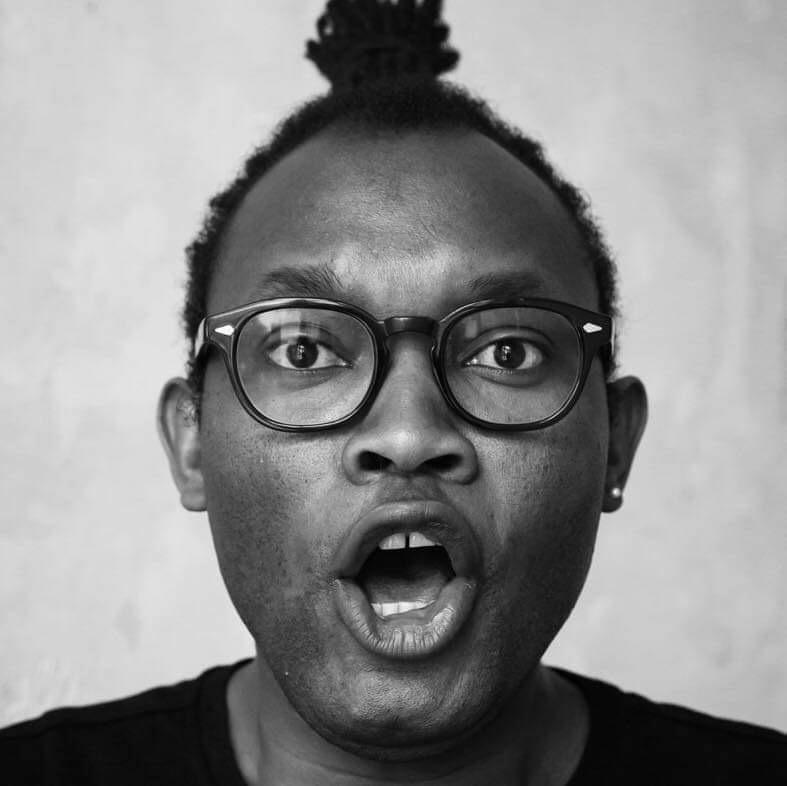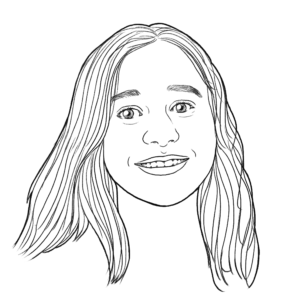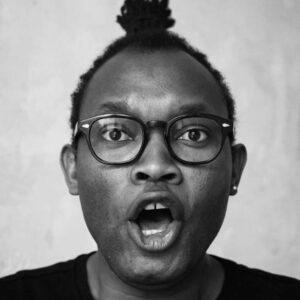You compiled and edited a poetry anthology Kontinentaldrift: das Schwarze Europa, which maps the voices and poems of Black Europe. Can you tell us a bit more about it?
I am from the Democratic Republic of Congo, and I’ve been living in Europe since 2007. When I arrived, I realised that Black writers or writers of African origin are limited to their linguistic borders: French-speaking writers are only known in French-speaking countries, and the same for German-speaking writers. I had the idea to create an anthology which would bring together 33 poets from the Black diaspora who were born in Europe. While they are European, they negotiate this fact with their African or Caribbean origins. This shines through in the way some writers structure their texts. They merge European form with African thematics, like what it means to be a Black woman or man in Europe, their experiences of racism, colonialism, or the role of the grandmother in African families. These are themes which are specific to their unique experiences. That’s how Kontinentaldrift: das Schwarze Europa came about. And I think this is the first European-wide anthology dedicated to the new generation of Black diaspora poets.
What I’m doing at Bozar as part of their Literature Talks follows the same line of thinking. It is crucial to reach beyond linguistic borders, to bring together Radna Fabias, who is Dutch with Curacean origins, Roger Robinson, who is famous in the UK, Ubah Cristina Ali Farah, a Brussels-based Italian-Somali writer, and Raquel Lima, who is based in Portugal.
What does Black Europe mean to you?
While in this anthology, there are several positionalities regarding the word “Black”, but there’s also a shared experience. I was inspired by Paul Gilroy’s The Black Atlantic, where he says that “it’s the invisible ties that bring together artists of Black diasporas.” There are writers who identify as Black and this term is important, because it brings you back to your skin colour, to what you should be or are perceived to be. So for me, Black Europe is a little bit of a provocation. Because it boils down to racism, to being Black in the western world. The term “Black” is simply what unites all of them.
Black isn’t only a skin colour, it’s an invitation to travel, far away roots, and a traumatised past. The term is plural: it can make reference to African roots, but it’s also about slavery, colonisation, and racism. It’s the feeling of belonging to an invisible community. That’s why I’m happy Radnia Fabias, Ubah Cristina Ali Farah, Roger Robinson and Raquel Lima are sharing a stage. They belong to a generation of poets who express themselves from Europe with their unique subjectivity and outlook on the world. It’s interesting to see how borders play out in writing.
You can’t always pinpoint where a writer is from through their poems. Writers don’t have to unveil their roots and answer all of our questions to invite us into their imaginaries, their worlds. It’s the right to opacity, where you don’t have to make yourself understandable across cultural borders. On the other hand, you have the poetics of unveiling, where poets bare themselves to show you their roots. There is no fixed state, poetry about one’s roots is in constant movement.
Can you tell me how the concept of diaspora translates itself in poetic language?
What I’ve noticed is that these poets further interrogate the concept of diaspora because their double origin translates to a constant back and forth between their current home and their parents’ countries. What is interesting in the anthology is that all the featured poets were born or raised in Europe and thus constitute a break from African diaspora poetry, which is oriented towards the African continent. African poetry brought forward themes of freedom, the figure of the African woman, African history, and exile. But the poetry of Black diasporas today has new themes, like the experience of being a Black woman and a muslim, to be Afropolitan, or racism which wasn’t as important in African poetry. On a stylistic level, poets now draw inspiration from paintings, rap music, and urban cultures. This all amounts to a form of creolisation* of poetry, and of the world.
Their poetry calls into question national, transnational, and even diaspora literature. Each poet constructs mythologies on their own selves, their place within collective and universal frameworks. My own poetry is anchored in African Congolese and Luba culture, but at the same time it draws inspiration from French poets such as Guillaume Apollinaire or Arthur Rimbaud; American ones, like Langston Hughes, or Austrian writers, like Rainer Maria Rilke or Ingeborg Bachmann. So, my poetry is transversal because it goes beyond regional and linguistic borders, drawing from different voices of the world.
*Creolisation is a concept drawn from Caribbean history, first used by linguists to speak about creole languages and later used by social scientists. For the latter, it refers to the dynamic merging and enrichment of societies, which create new varieties of cultural expression. It can also be used when multiple diasporas meet or intersect.
Speaking of linguistic borders, how has your writing changed between French and German?
I write in French because I was born in a country that was colonised by French-speaking Belgium. I didn’t choose this language as a writing language. It came to me. But writing in German is a choice. It became a necessity since I live in a German-speaking country but it was also a way to end my solitude and go beyond borders.
I love to play with language, and when you speak multiple languages they feed into each other, enrich one another. German is my sixth language. The other languages I speak—French, English, Swahili, Lingala and Tshilubà—all feed the language in which I write. For example, I am writing in French but I live in Austria. French has become this fictive, almost dead, language to me in Austria. I have to find the right words, the right access to it since I don’t practise it in my daily life anymore. Writing in French becomes a journey, a move towards myself. Everyday, I write poems in French so as not to forget the mechanism of the language. Language to me is like a garden, a forest: I try to cultivate it, because it needs water and sun. It is a place of memory.
Having lived in Europe for so long, do you feel European?
I don’t feel European, nor do I feel African. Being African is vague as an identity. But I do feel Austrian and Congolese, and more. To me, identity is dynamic, and on any given day I feel like one or the other. It all depends on the place, the context, or my mood. For example, coming to Brussels has me feeling like an Austrian writer with Congolese roots. It’s complex. In Graz, I feel Austrian, but with the turn of a phrase I can suddenly feel Congolese or Black once again.
Contrary to the poets in the anthology, I would not be able to say that I am a child of Europe because I only arrived here as an adult. I have the reflexes of someone who was born on the African continent. I had a childhood which is typical of my region, and that can’t be stripped away from me. It’s a very different experience from that of someone born in Europe. When I speak French, it isn’t the French of someone who grew up in France or Belgium. The same with my German. Through language and culture, I’ll never be a child of Europe. It’s those who were born in Europe, or grew up here, who have this double culture. Some of them go back and forth between countries—everyone negotiates their pasts differently. Some even go back to Africa as adults. There’s Gioia Kayaga, who is Belgian, with Burundian and Italian roots, who moved back to Burundi or Alfred Schaffer with Dutch-Aruban roots who moved to South Africa.
How has this experience of a dynamic identity affected your profession?
On top of being a poet and a novelist, I see myself becoming a courier, or a mediator. For me, it’s important to open borders and allow for a dialogue to take shape. I have a career that’s a bit scattered. I am also a performer, I play in jazz orchestras and in and in the Deutsches Symphonie Orchester Berlin in a composition by Yiran Zhao. I write operas, too. And while I’m also organising a series of lectures around the anthology with my Unheard Poetry, I am also curating a transnational literary festival of African and non-African Black writers coming to Graz with Weltwortereisende (World-word-travellers).
When talking about diaspora and roots, the words “home” or “belonging” come to mind. Do you think these concepts have a fixed definition? What do they mean to you?
I think that the notion of “country” is inherently colonial. I am Congolese, of course, but I also see myself as Luba because I’m one of the Luba people. For us, country is our family name. Country is genealogy, language, food, customs and traditions. For me, my country is first and foremost my name. On stage, in Europe or anywhere, I consider myself as never alone. I carry with me all of my ancestors, the names of my family members, whether they are dead or alive. And it is my Luba origins which bind me to Congo, this imagined country. We also say that country is where you can be buried. Country is not only your origins, but also where you can lie down and feel at home. When I arrived in Europe, I told myself I’d never be buried here. Now I can see myself being buried here.
Nowadays, my home is also Austria. I’ve been here for a few years, and I’ve built landmarks which are sites of memory. In one of his poems, Roger Robinson speaks of a portable paradise. And I think that the notion of country can be carried with you. I’ve always considered my house as a mini-Congo. I wrote a poem where I said “my country is my bed, and I live through exile every morning as I set foot out of it.”




